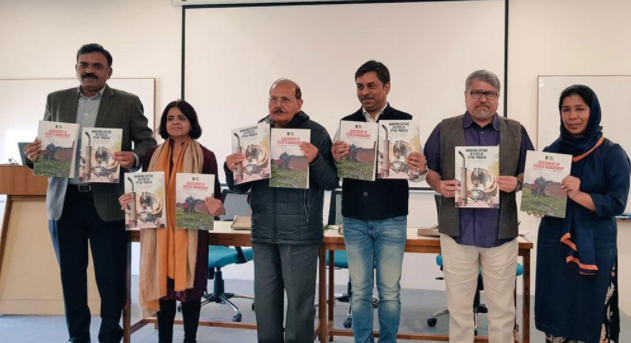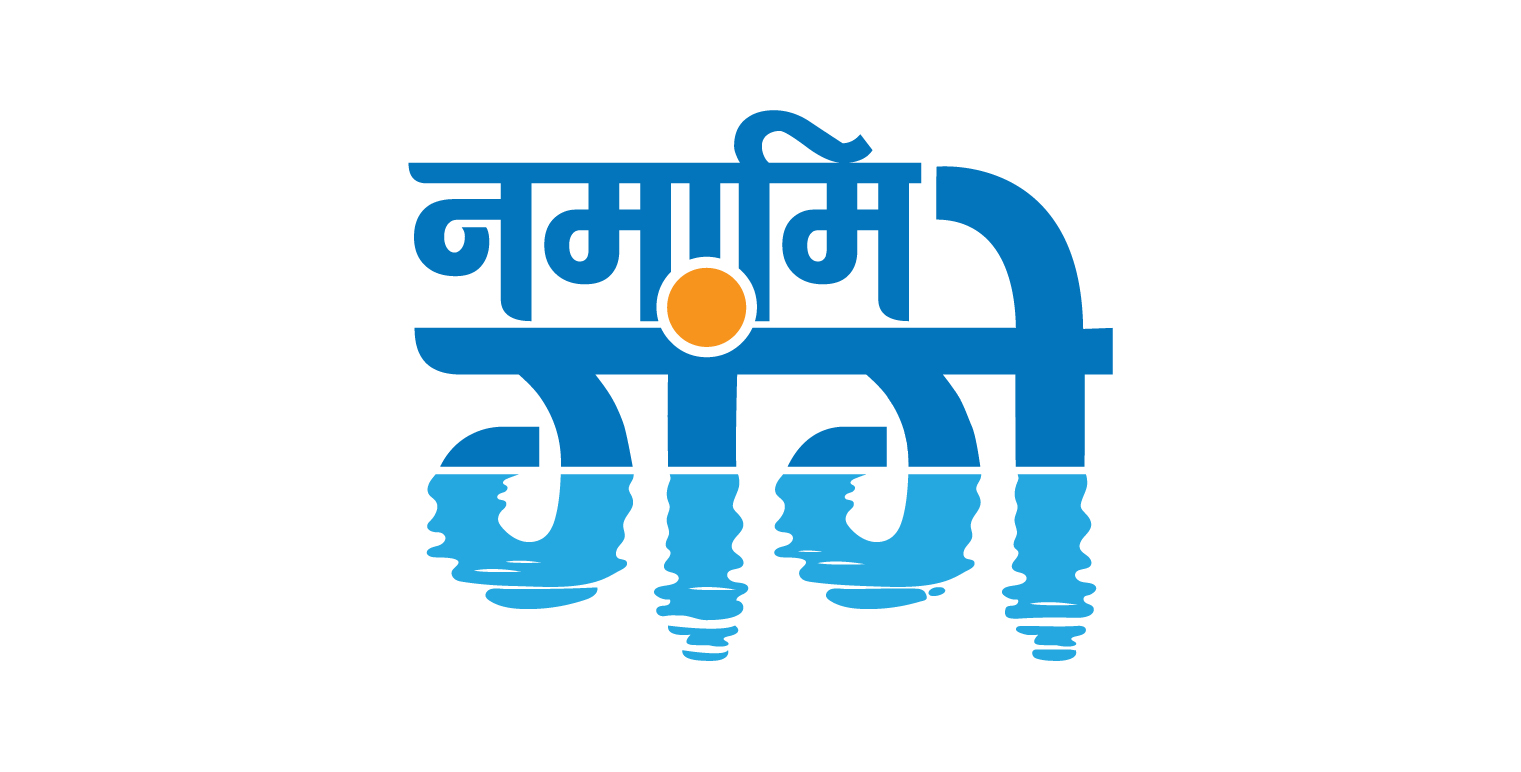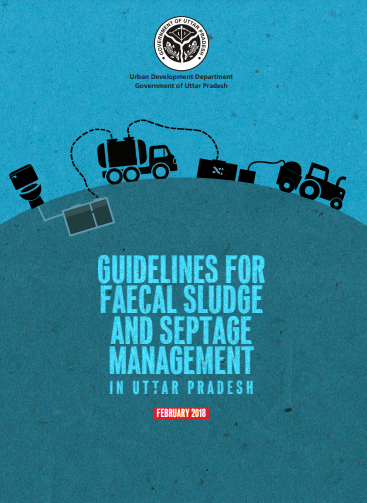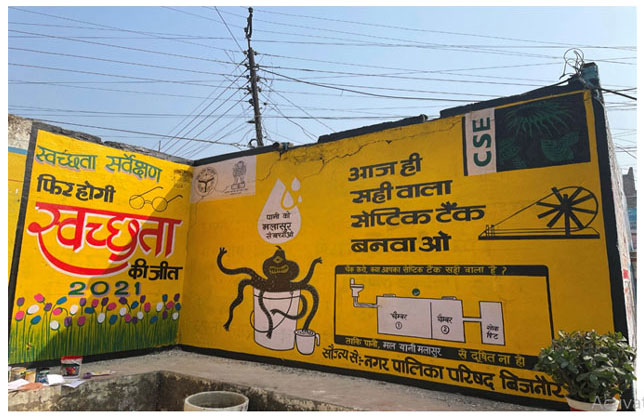 Vertical
VerticalScroll
 Vertical
Vertical





Uttar Pradesh is steadily scaling the innovations and building capacities of stakeholders on FSSM.
A successful partnership of the state with a technical support unit (TSU) backed by positive convergence of the Swachh Bharat Mission and Namami Gange Mission put a thrust on capacity building efforts of Uttar Pradesh formative sanitation journey years.
Urban Local Bodies (ULBs) were provided with capacity building support by the state TSU. They were given guidance in preparing City Sanitation Plans (CSPs), effective FSSM integration, technical support for state and city guidelines as well as planning and implementing pilot projects for faecal sludge treatment and small-scale wastewater treatment systems in select cities in UP.
These efforts were successful and secured the mandate of the state governments for working in select cities of the Ganga basin on FSSM interventions while also getting endorsements from the Swachh Bharat Mission (SBM) and National Mission for Clean Ganga
Shit Flow Diagrams (SFD) was used as a tool to assess the untreated faecal load in the state, basis which the state decided to ramp up city sanitation planning with a focus on FSSM. These SFDs were developed at the very initial stage of development of CSPs.
These baseline observations were used to initiate a 2-phased program to build the capacity of state and non-state actors and to find long term sustainable solutions for treatment of wastewater and septage.
Basis the observations from the SFDs, regional workshops were held to build the capacity of key stakeholders in technological support, monitoring of data and FSSM which was then used in preparing efficient city sanitation plans with a focus on faecal sludge management.
The capacity building initiatives were aimed to achieve convergence of NMCG – Namami Gange, AMRUT, SBM – ODF cities programme in identified flagship town & cities by planning for city wide sanitation including non-sewered areas and identification of interventions for effective wastewater /septage management.

The State's Department of Urban Development signed a MoU with the Centre for Science and Environment with the aim to strengthen capacities of the state and city officials for effective implementation of FSSM through State Level Programme Support Units and City Level Technical Support Units.
Namami Gange program signed a MoU with CSE as a technical support unit knowledge partner with the goal of mainstreaming FSSM and building state capacities. This partnership was pivotal in the convergence of river rejuvenation and faecal sludge management for the state
An independent Ganga monitoring plan needs clarificationand helpdesk for improved diagnosis of faecal load was set up as a result of these efforts.

Based on the momentum on FSSM post the signing of MoUs, medium populated ULBs with low sewerage networks were selected for FSTP construction and co-treatment was proposed for larger cities with STPs running under full capacities.
There was a thrust towards funding and floating of tenders for FSTP construction and infrastructure building for 31 FSTPs and 14 Co-treatment facilities.
Chunar was chosen as a priority town and learning model for FSSM in the state and was the first to be funded by NMCG for a 10 KLD pilot FSTP.
The town of Bijnor was funded by NMCG as a pilot project for co-treatment of faecal sludge at a pre-existing STP.
Mount and Sani-kit were launched as web-based tools to facilitate streamlining of integration of FSSM in city sanitation plans with the support of the state TSU. Sani-kit is a portal for preparing efficient city sanitation plans while MOUNT is an aggregator platform for sustainable, environmentally friendly technologies for treating faecal sludge and septage.

Lucknow and Kanpur: STPs in these cities were running under capacity and chosen jointly as pilot intervention for co-treatment of faecal sludge at the STPs by DoUD & local bodies for safe disposal of faecal sludge.
Unnao: This city was chosen by the state as first pilot FSTP under AMRUT programme.
Chunar: This city is one of the priority towns under Namami Gange programme selected by NMCG as the first pilot project – as a learning model for other towns for FSM-related interventions such as licensing of private operators, scheduled desludging, development of business models, etc as well as a rapid City Sanitation Plan (CSP).
Bijnor: Co-treatment of faecal sludge at Bijnor STP is one of the actions recommended in City Sanitation Plan (CSP) for safe disposal of faecal sludge from on-site sanitation systems from households not connected to the sewerage network. In addition, licensing of desludging operators was taken up in Bijnor to formalize FSSM services, a step towards inclusive sanitation.
GPS trackers were installed in trucks in Chunar for safe disposal of untreated waste.
This policy has been crucial in bringing about a paradigm shift in how citizens, government stakeholders and service providers approach septage management and treatment in the state
After being declared ODF in January 2019, the state made efforts in moving towards ODF+ and ODF++. The Uttar Pradesh Government enacted the State Septage Management Policy on 30th October 2019 with a five-year vision of improving water quality, decreasing the pollution load, and improving public health through effective septage treatment services by the year 2023.
The state aims at creating a bottom-up, demand driven approach to septage management systems by developing the capacity of local level implementers and inculcating a supportive environment through behaviour change.
The policy proposes levying ‘septage fees' as part of property tax from households which are not connected to the city's sewerage network to encourage safe collection and treatment.

Apart from state level training, key stakeholders had the opportunity for exposure visits to Odisha, Nepal, Bangladesh, Malaysia, and Philippines to learn from FSSM best practices across the globe and to integrate them in the state
The 'Alliance for Urban Transformation' was formed by the Uttar Pradesh state government as a platform for collaboration and cross-learning for state actors and development sector professionals. This body of key stakeholders consults on key matters related to citywide sanitation and FSSM.
The first meeting highlighted the objectives:
To understand the challenges and the support needed by various state actors and development partners in obtaining the desired outcomes in Uttar Pradesh.
Address the need for collaboration and convergence for achieving holistic goals of 'Water and Sanitation for All' in the state.
Formation of a State Level ‘Sanitation Task Force' as a platform to facilitate this collaboration and convergence among all actors.
The Alliance rallied behind frontline workers during COVID-19 bringing together key stakeholders such as UNDP and UNICEF.
City Level Progress:
Regular City Sanitation Task Force (CSTF) Meetings are conducted based on the City Sanitation Plan process. The task forces actively come together to take informed decisions with respect to sanitation in the cities.
A CSTF was constituted in Bijnor and Chunar to develop and implement a city sanitation plan/city FSSM guidelines through stakeholder approach.

The Malasur campaign was launched in June 2020, as a behaviour change campaign, in Chunar and Bijnor. The campaign raised awareness on the improper emptying and transportation of faecal sludge and the need for change in existing knowledge systems and attitudes of the people.
The state's FSSM journey for the future entails scaling up its existing strategies with a focus on establishing co-treatment in the Ganga basin
The state aims to scale up the Shit Flow Diagram initiative phase 3 to bridge the existing gap in availability of data for monitoring safely managed sanitation (SDG 6.2) and improve citywide sanitation planning and effective sanitation investments in urban areas.
The cities of Chunar and Bijnor are envisioned to be developed as model learning centres to be replicated across ULBs in the Ganga basin and Mainstreaming co-treatment and FSSM in small and medium towns
The state is looking forward to developing business models for FSSM as a service for demand-based desludging and assess the Technological feasibility of decentralised wastewater conveyance and treatment.

Based on the experience of rolling out the Malasur campaign in Chunar and Bijnor, the campaign is now being planned to be rolled out in other cities of UP where FSTPs are installed.
Efforts will be taken towards government engagement to get policy, guidelines, and model byelaws at state-level (UP) and enact a state-level FSSM implementation strategy which includes fees, scheduled desludging etc.
A monitoring and evaluation strategy will be developed for implementation of FSSM at National and State level thereby establishing a forum of cities that manage septage, track and handhold for effective implementation.

Focus areas supporting Uttar Pradesh's FSSM achievements


The National Faecal Sludge and Septage Management (NFSSM) Alliance was convened in January 2016. The Alliance was convened to build consensus around faecal sludge and septage management. The Alliance with support from the Bill and Melinda Gates Foundation works in close collaboration with the Ministry of Housing and Urban Affairs and helped design a national policy on FSSM.

